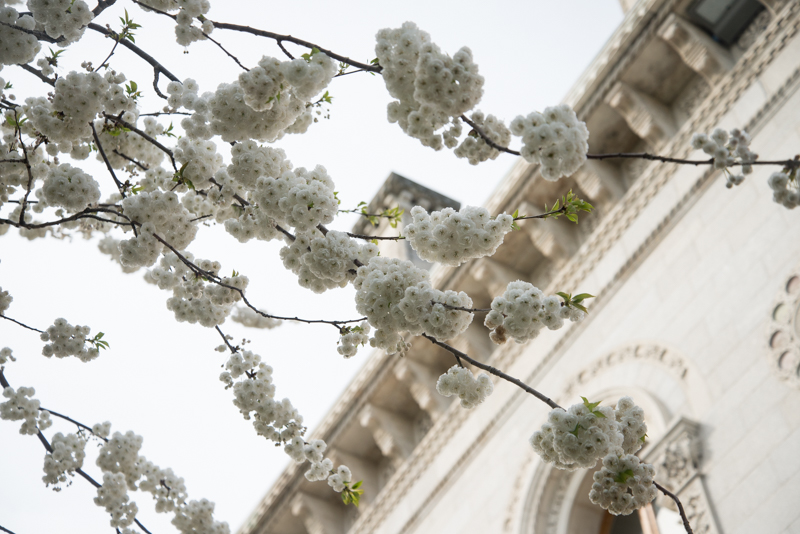The decisions we take on biodiversity and climate action now will determine whether this generation, and those to follow, will have a liveable planet or not. A liveable planet is one that provides for our critical needs in terms of food, water and shelter as well as meaningful livelihoods and mental and physical wellbeing. For this we need a well-functioning earth system with thriving nature at its heart, keeping conditions ticking along at levels that humans are adapted to. That means limiting temperature rise to the 1.5 degrees Celsius commitment in the Paris Agreement. Biodiversity and climate action is good for people, nature and the planet.
People have already changed the earth profoundly through the burning of fossil fuels, livestock farming and land degradation, so that a global temperature rise of at least 1.5 degrees is inevitable. While an extra 1.5 degrees might not sound like such a bad idea from the perspective of an Irish winter, our current state of one degree over historical levels has already caused greater flooding risk, changes in the distribution of biodiversity, a rise in the presence of pests and diseases and increasingly frequent and more intense wildfires. The climate is changing rapidly and will continue to do so, the only question is, how fast and how far?
To keep global temperature rise to 1.5 degrees, Ireland has committed to reducing carbon emissions by 51 per cent by 2030 and to net zero by 2050. To do this, our society, economy and way of life faces a huge transformation. College will play its part in driving the change needed within its own operations as well as building the capacity and knowledge to accelerate the discovery and implementation of solutions to the climate and biodiversity crisis.
Provost Linda Doyle’s vision of a “climate-first Trinity” and the establishment of a Vice President for Biodiversity and Climate Action set the bar high, putting biodiversity, climate action, and environmental responsibility at the heart of College structures. However, transformation will require all parts of College – leaders, staff and students – to play their part. Action is not confined to the office of the new VP.
Transformation will require all parts of College – leaders, staff and students – to play their part
With action comes hope for a transformed world where biological resources and renewable energy sources replace the use of fossil fuels, a sustainable circular economy which reuses waste materials from one process to feed another, and a nature-based economy which values the many benefits that nature provides. This means driving investment back into the forests, grasslands, salt marshes, bogs and rivers that enable people to live well on this exceptional planet.
Activism is a key driver of the transformation process. During the Provost’s election, staff activism led to the holding of the first-ever environmental hustings and saw biodiversity and climate action discussed as a key part of candidates’ manifestos. School climate strikes, initiated by Greta Thunberg, have galvanised leaders to address how their inaction is affecting the futures of young people. Young people have the most at stake in the climate and biodiversity crisis and we need to listen to their voices and act as they push us to do more, and faster.
Trinity’s sustainability credentials have a strong base, we have held a green flag since 2013 and are part of the Green Campus Programme based around the UN Sustainable Development Goals. Annual sustainability reports document valuable progress around current goals and the recent Biodiversity Audit and ongoing development of a climate action plan are important innovations.
Trinity is one of five universities in the UNI-ECO partnership which have developed a course on climate action and sustainable development. Staff and students can take these modules to learn about living more sustainably. Joining the Green Campus Committee is an effective way to contribute to College’s sustainability.
Young people have the most at stake in the climate and biodiversity crisis and we need to listen to their voices
There is much more that we need to do, and in my first year I will be working with colleagues to mainstream biodiversity and climate action throughout governance, operations, outreach, research, teaching and learning. There are huge opportunities for new ways to work, live and study that will help us achieve our climate and biodiversity goals while also improving our quality of life.
The Healthy Trinity initiative will be embedded within the new sustainability office, as there are important parallels and intersections between human and planetary health. Healthy diets, active travel and understanding how systems affect our choices and behaviour are just some of the areas we can work on together.
During the first six months of my position I will set up the management and operations structures needed for a climate-first Trinity, including resourcing a revamped sustainability office. I will progress and amplify ongoing work in sustainability and help to find alignments between work in different areas. With my colleagues, I will build on the existing climate action plan for Trinity and work towards a biodiversity action plan for the College campuses. My job is to ensure that Trinity has a sustainable future within a flourishing national and international environment for people, nature and the economy.
Prof Yvonne Buckley is Trinity’s Vice President for Biodiversity and Climate Action.








